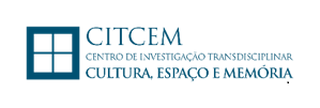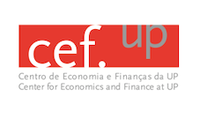Introduction
Cinema exhibition is now a central theme in the area of culture, related to cultural democratization.
A number of international organizations, the European Union (EU) and national public institutions are paying more attention to cinema exhibition, and there is a growing recognition that commercial exhibition should be complemented by an additional one ensuring diversity, knowledge and accessibility.
In fact, several issues are being investigated, discussed and implemented regarding audiovisual and cinema accessibility:
In spite of these developments, exhibition outside commercial channels remains scarcely studied in the EU, including in Portugal, where knowledge in terms of its size and especially its importance and role in the cinema circuit is limited.
The lack of knowledge about this problematic is justified by the intrinsic characteristics of this "sector". In Portugal, the alternative cinema exhibition is, by its very nature, a minority fraction of cinema exhibition in global terms, undertaken by a few public bodies - such as the Cinema and Audiovisual Institute (ICA), the Portuguese Cinematheque (Cinemateca Portuguesa) and some municipalities - and various local associative structures, such as film societies. Many of these associations:
These characteristics make it difficult to create a "true" circuit or "network"; of alternative cinema, essential for cultural diversity and offer.
In this context, non-commercial cinema exhibition plays a dual role.
A number of international organizations, the European Union (EU) and national public institutions are paying more attention to cinema exhibition, and there is a growing recognition that commercial exhibition should be complemented by an additional one ensuring diversity, knowledge and accessibility.
In fact, several issues are being investigated, discussed and implemented regarding audiovisual and cinema accessibility:
- digitization policies for screens and digital files/archive;
- incentives to the distribution and exhibition of alternative cinema;
- reduction of territorial disparities in the access to cinema;
- recognition of the patrimonial nature of film heritage and promotion of "film literacy" in schools.
In spite of these developments, exhibition outside commercial channels remains scarcely studied in the EU, including in Portugal, where knowledge in terms of its size and especially its importance and role in the cinema circuit is limited.
The lack of knowledge about this problematic is justified by the intrinsic characteristics of this "sector". In Portugal, the alternative cinema exhibition is, by its very nature, a minority fraction of cinema exhibition in global terms, undertaken by a few public bodies - such as the Cinema and Audiovisual Institute (ICA), the Portuguese Cinematheque (Cinemateca Portuguesa) and some municipalities - and various local associative structures, such as film societies. Many of these associations:
- are poorly structured;
- are geographically dispersed;
- depend on the volunteer work;
- possess informal practices of organization and functioning.
These characteristics make it difficult to create a "true" circuit or "network"; of alternative cinema, essential for cultural diversity and offer.
In this context, non-commercial cinema exhibition plays a dual role.
- On the one hand, it is often the only possibility of linking populations to cinema, or even to culture and the arts in general, by helping to mitigate disparities in the access to culture and the arts.
- On the other hand, it promotes the diversification of film offer - through more selective and more "alternative" or "independent" choices, focused on cinema which is less mainstream, quite different from commercial programming.
Project
In this context, this project aims to get to know the circuit of non-commercial film exhibition and to understand its role and importance in the global context of the film exhibition market.
Focusing on the Portuguese case, this study intends to find out:
Focusing on the Portuguese case, this study intends to find out:
WHO ARE THESE CULTURAL AGENTS?
WHAT ACTIVITIES DO THEY DEVELOP?
IN WHICH CONDITIONS DO THEY WORK AND FUNCTION?
WHAT ACTIVITIES DO THEY DEVELOP?
IN WHICH CONDITIONS DO THEY WORK AND FUNCTION?
It has sought, therefore, to establish itself as a starting point for the production of empirical data and systematized knowledge about the characteristics and working conditions of the alternative cinema circuit in Portugal, which can be expanded to other European countries.
This project is being developed by the Faculty of Economics of the University of Porto (FEP) with the active collaboration of the Institute of Cinema and Audiovisual (ICA), which has been participating in the design of the project and providing both empirical information and logistical means.
This project is being developed by the Faculty of Economics of the University of Porto (FEP) with the active collaboration of the Institute of Cinema and Audiovisual (ICA), which has been participating in the design of the project and providing both empirical information and logistical means.
Dissemination of results
During 2018 and 2019, there are plans for a broad dissemination of research results, both in the academic circles and for the cultural agents involved in this study and the general public, via various papers on the results of the project as well as through this website. At the same time, the project is being extended to other dimensions of analysis.
Contacts
Faculty of Economics, University of Porto
Rua Dr. Roberto Frias
4200-464 Porto
Portugal
Rua Dr. Roberto Frias
4200-464 Porto
Portugal




